OCTREOTIDE - INJECTION
PHONETIC PRONUNCIATION: (ok-TREE-oh-tide)
COMMON BRAND NAME(S): Sandostatin
GENERIC NAME(S): octreotide acetate
Uses
USES: Octreotide is used to treat severe watery diarrhea and sudden reddening of the face and neck caused by certain types of tumors (e.g., carcinoid tumors, vasoactive intestinal peptide tumors) that are found usually in the intestines and pancreas. The symptoms occur when these tumors make too much of certain natural substances (hormones). This medication works by blocking the production of these hormones. By decreasing watery diarrhea, octreotide helps to reduce the loss of body fluids and minerals. Octreotide is also used to treat a certain condition (acromegaly) that occurs when the body makes too much of a certain natural substance called growth hormone. Treating acromegaly helps reduce the risk of serious problems such as diabetes and heart disease. Octreotide works by decreasing the amount of growth hormone to normal levels. This drug is not a cure for these conditions. This medication is usually used with other treatment (e.g., surgery, radiation, other drugs).
How to use OCTREOTIDE - INJECTION
HOW TO USE: This medication is usually given by injection under the skin, usually 2 to 3 times a day or as directed by your doctor. Depending on your condition, it may be given by injection into a vein by a health care professional. If your doctor directs you to inject this medication under the skin yourself, learn all preparation and usage instructions from your health care professional. Learn how to store and discard needles and medical supplies safely. If you have questions, ask your health care professional. Before using, check this product visually for particles or discoloration. If either is present, do not use the liquid. Before injecting each dose, clean the injection site with rubbing alcohol. Change the location of the injection site each time to avoid problem areas under the skin. Dosage is based on your medical condition and response to treatment. Use this medication regularly to get the most benefit from it. To help you remember, use it at the same times each day. Tell your doctor if your condition does not improve or if it worsens.
Side Effects
Precautions
Interactions
Overdose
Images
Reviews
Faq for OCTREOTIDE - INJECTION
Octreotide injection is used to treat severe diarrhea and flushing episodes in patients with certain types of tumors, such as carcinoid tumors, vasoactive intestinal peptide-producing tumors, and tumors associated with neuroendocrine symptoms.
Octreotide is a synthetic version of a hormone called somatostatin. It works by inhibiting the release of certain hormones, such as serotonin, gastrin, and insulin, which are responsible for causing symptoms like diarrhea and flushing in patients with certain tumors.
Octreotide injection is administered as a subcutaneous (under the skin) or intramuscular (into the muscle) injection. It can also be given as an intravenous (into the vein) infusion in some cases.
Common side effects of Octreotide injection include injection site reactions, gastrointestinal disturbances like nausea and diarrhea, abdominal pain, headache, and dizziness. Other less common side effects may also occur.
Yes, Octreotide injection may cause gallbladder or liver problems, thyroid abnormalities, and changes in blood sugar levels. It may also interact with certain medications, so it is important to inform your healthcare provider about all the medications you are taking.
Octreotide injection should only be used during pregnancy if the potential benefits outweigh the potential risks. It is not known whether Octreotide is excreted in human milk, so caution should be exercised while using it during breastfeeding.
The dosing and frequency of Octreotide injection may vary depending on the specific condition being treated. Your healthcare provider will determine the appropriate dosage and administration schedule for you.
Disclaimer
IMPORTANT: HOW TO USE THIS INFORMATION: This is a summary and does NOT have all possible information about this product. This information does not assure that this product is safe, effective, or appropriate for you. This information is not individual medical advice and does not substitute for the advice of your health care professional. Always ask your health care professional for complete information about this product and your specific health needs.
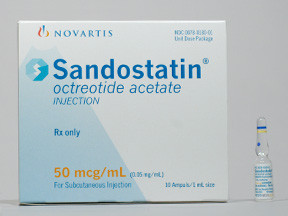

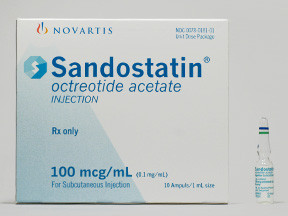
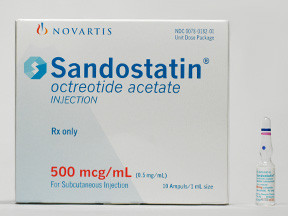
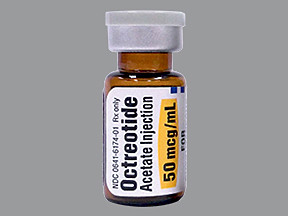
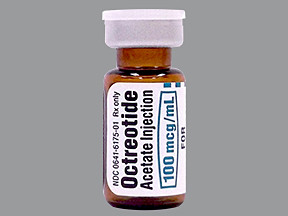
No Reviews Yet